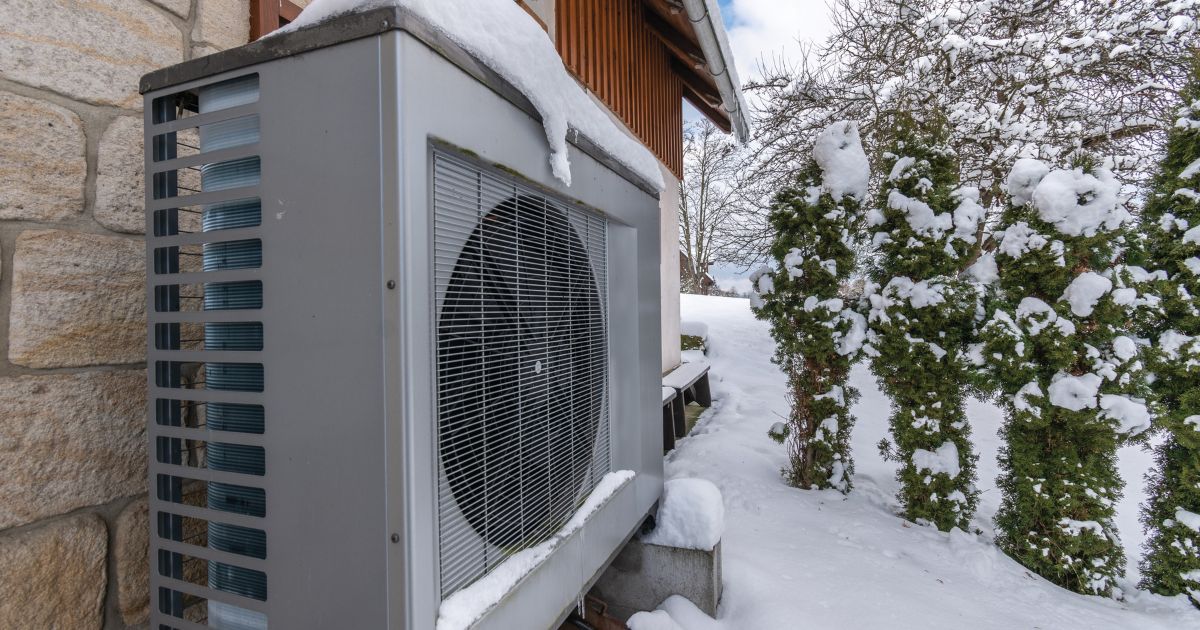Those romantic notions have reached new levels of urgency during the pandemic. Has anyone ever wanted
to have their own farm as much as they did during the years of Covid lockdowns? I sure did. All of a sudden, the idea of self-sustainability and locally sourced food became paramount. For so many of us, though, growing our own food is still a long way from reality.

Fortunately for Chris Krucker and Denise Trigatti, having their own farm was a dream they embarked on many years ago. Their farm, Manorun Organic Farm (named after their family’s Irish wolfhound, Manor), set on the outskirts of Hamilton, in Copetown, Ontario, has grown into a thriving enterprise for them and their family, including daughters Naomi, Nakita and Keshia and son Kaleb. Together with their children, Chris and Denise have now been farming organically for 25 years, offering organic vegetables through a community-supported agriculture (CSA) program.

What inspired them to go after this dream
“We both have families that have a background in farming, so they were quite inspirational to us and we knew we wanted to make a change and get back to the land,” Denise shares.
“We were living in downtown Hamilton and made a commitment that within a period of 6 to 12 months we’d find a property in the country. And that was really because we grew up going to our uncles’ hobby farms,” says Chris.
Even with their shared experiences of visiting their family’s farms, it was still a steep learning curve for the couple as they transitioned to managing their own land. “There were a lot of hard lessons,” Denise asserts. “We actually started with a very small group of friends, growing our own vegetables for ourselves, and it all kind of snowballed from there into the CSA we have now.”
“We really didn’t know what we were doing,” Chris says, laughing “It’s been what I call a 15- or 20-year internship.”
A combination of things helped Chris and Denise grow into their roles. “We did a lot of reading and visiting other farms, but it was mostly trial and error,” says Chris. “We started with a very small garden. Our first CSA membership was five members, and two of them were family. Then we went to 15 the next year, and then we went to 45, and then we worked our way all the way up to 200, which we have now.”
The CSA allows people to buy a whole season’s worth of food. “In our case, that’s 24 weeks,” says Chris. “We grow everything that we can for as long as we can. And then every week, they get to order from our harvest of that week.” “It starts with greens in the spring, all the way to root vegetables in the fall. We grow it all,” says Denise.

For so many of us, the idea of fresh-from-the-garden food fuels our dreams of moving out to the country. How nice would it be, we wonder, to have a plot of land that yielded good-for-you, nurturing food for our families? If it could connect us deeply with nature and our animal friends again? And wouldn’t it be an amazing place to raise our children in too?
Raising a farm and a family
It wasn’t just food that Chris and Denise were growing, though. They had a young family to raise as well. How did they manage to pull it all off ?
“They’ve always been a part of the farm,” says Denise. “Since they were tiny, they’ve always done chores. They’ve been able to keep their own animals and take care of their livestock. It’s been a big part of our family life.”
“As the kids grew up, starting at around the age of 10, they would have to work 3 days a week for 1 hour a day. And then in year 2, they would go to 2 hours. And so they worked their way up to working 3 days a week in the summer. So they developed the skill and the ability to do the work slowly over time. We also paid them really well for that time,” says Chris.
As a result, “They’re all really good, strong, healthy workers,” Denise says. “They grow up with a lot of responsibility. There are things you have to do. You don’t think about it. You just go out and you take care of the animals; you take care of what needs to get done. It’s ingrained in all of them.”
That continues to this day. “Everybody works in some capacity on the farm,” says Chris. “Two of our daughters manage all of the vegetable production in the CSA and the books and all that kind of stuff relative to the vegetables. That’s Keshia and Naomi. Then we have Nakita, who does our social media, photography and design. And then Kaleb recently graduated from college. He studied diesel mechanics, so he’s doing a lot of repairs for us.”
Chris and Denise were also keen to bring their kids into the money management side of things, so they could learn about that part of the business early on. “The advice I remember is not just the environmental sustainability, but the financial sustainability, and to show your kids the money,” says Chris. “So we’ve always tried to make sure that a component to the farm is about their personal wealth as well. It’s not as though we make an incredible amount of money, but we always made sure that the kids were paid well.”
While Denise and Chris raised the kids to participate in the management and upkeep of the farm, they say there wasn’t an expectation that the kids would continue the family legacy. “They were all encouraged to go off and do their own things and they did. They went to school, they had other jobs, and they’ve all found their way back to the farm. I think they just really value being on the farm and have come back to it on their own. Our daughter Naomi actually owns a 5-acre farm not far from here. So she’s working here and continuing that at her place as well,” Denise says.

“We made farming fun,” says Chris. “I mean, definitely, they had to work, but you know, they were horseback riding because they all had ponies as they grew up. So it’s been an enjoyable experience. We tried not to make it too onerous, the workload.”
It sounds like the ideal way to raise a family, but Chris and Denise admit it hasn’t been all roses. “It’s hard work,” says Denise. “You’re out in the hottest weather; you’re out in the coldest weather. We just started coming out of another crazy patch of cold, and chores take longer, and we’re lugging hoses back and forth and things aren’t starting, and you know, it’s the same in the extreme of summer when it’s so hot — there’s not a lot you can do to keep cool. So I think that’s the harder part of it, but it is a good way of life. I love being outside and being in nature, and I’m happy that every day I get my vitamin D, and I’m grateful to work with animals.”
The challenges of running a farm
You need some money behind you,” says Chris. “If you’re not inheriting the farm, then all the infrastructure has to be bought, and then even buying the farm likely will mean a significant mortgage. And so if you think you’re gonna make money in the first 1 to 5 years, that’s gonna pay for that stuš, that’s just not realistic. You need to learn how to farm. Go work on a farm for a season or two, intern, and then figure out your economic strategy. There’s such a range of skills for small-business owners. It took us decades to get there.
It’s also been challenging because we small-scale farms don’t get a significant amount of support from the government,” he adds. “It would be great to have more support for these small farms — such as access to land/protection of farmland near urban centres, training opportunities, loans with reasonable long-term rates, and fair food pricing (not global food pricing). We’ve survived, and the other farms have survived, despite the types of protocols or mandates that are out there around agriculture.

A family affair
“With the kids back working on the farm either full time or in some capacity, I think it says that growing up here was a good experience,” Chris adds. “I think as a family, we’re saying, how do we continue that for the next generation? Because our kids are beginning to have their own kids. So how can they also participate in the farm as they grow up?”
When it comes to keeping up with the times, Chris shares that diversifying has helped the family weather the economic storms and grow and thrive as a business.
“We’re more diversified now,” says Chris. “So we do the CSA, but we also have other products. We do pork, chicken and beef. We’re working on organic nuts. We’re starting an orchard. We’ve experimented with selling grains like wheat and corn for people to mill. We are trying out different streams of income, rather than relying just on farmers markets or restaurants or CSA.”

Moving forward, the couple is excited to see where the kids take the family farm and business.
“We’re letting our kids’ interests flourish now. It’s been fun to see what direction they might take the farm,” says Denise. “We host a lot of social events on the farm — farm feasts, solstice celebrations, connecting with local artists and musicians. Keshia and her partner, Zach, are planning on starting a cidery. They’ve got some grant money behind them. We’ve planted over a hundred apple trees. So there are lots of fun, exciting options that are still growing.” “We’re not writing the next chapter — our kids are. It’s really up to them now to figure out how the farm continues,” adds Chris. “We’ve always been retail, and we’ve seen very consistent income. So we’ve been confident enough to say, ‘There’s a space for you on the farm if that’s what you want to do with your career.’”
Most important, though, they say, has been having the right attitude about what they do. “I know something that impacted me greatly because we were raising the kids on the farm was when we went to a CSA conference many years ago, and the kids were little,” Denise shares. “One of the first speakers that I saw was a woman who had a small young family. And she got up in front of everyone and just started crying and said this was the hardest thing she’s ever done. And I just turned to Chris and said, ‘I never ever wanna turn into that person.’ So, yes, it’s hard, but I think prioritizing having fun and really enjoying being here, and the beautiful nature around us is a priority.”
Denise credits her family, friends and community with helping her create a fun farming experience.
“We’re not so isolated. We’re close to Hamilton, Ontario. We’re close to a lot of things. We have a great network. We have supportive families and a great community of friends. And we just keep meeting a lot of fantastic people that enjoy spending time up on the farm,” she says. “People come all times of the year and drop in. The girls still have horses, so they’re coming out regularly. We have a pond that is now frozen that people skate on. It’s a really great hub.”

There are a few other ways the couple has managed to create a work-life balance to support growing a thriving business. “We shut down at 5 o’clock,” says Chris, noting that balancing work and life has been key. “There are some chores in the evening, but we start the workday at 8 o’clock, and it goes to 5, and we have a 1-hour lunch. We’re very careful that we don’t work weekends, other than the morning chore and the evening chore, so we’re careful not to become too tired. So many farms that we knew, those families didn’t survive the farming experience. They overdid it.”
“Another thing that we’ve always prioritized is, we used to just throw together a quick lunch. And then we realized we were growing this incredible food. So we prioritize our lunches now,” adds Denise. “Our lunches are always a nice big sit-down meal that somebody has spent at least an hour preparing. We all take turns. If you asked interns from past years, that’s one of the highlights. We have a really beautiful, hot lunch every day.”
Farm-fresh lunches, reasonable hours, surrounded by nature and animals? We may be a couple of decades late to this party, but as the saying goes, it’s never too late to start again.
Learn more about Manorun Farm here.
An editor with 15-plus years in the publishing business, Catalina Margulis’ byline spans travel, food, decor, parenting, fashion, beauty, health and business. When she’s not chasing after her three young children, she can be found painting her home, taming her garden and baking muffins.













